On December 14, 2024, I sat in the sitting room of one of my mentors in Abuja. I had had similar meetings with two other mentors. In the middle of Detty December parties at night, I was acquiring the deepest passages of wisdom in the days. I had flown to Abuja for this one (and to visit family). I met him back in 2011 while on campus (FUT Akure). He was, and is a missionary with The Navigators, a faith-based organization. I was having a conversation with him and his wife. I can’t recall what we were talking about. But suddenly I left the room, even though I remained with them physically. The 14 years I had known them flashed through my mind. They were exactly as purpose-driven, selfless and committed to their mission as when I met them. Even more. It was so inspiring it was a spiritual. I was going to walk out of that sitting room and live my life completely differently. I just knew it. And I have.
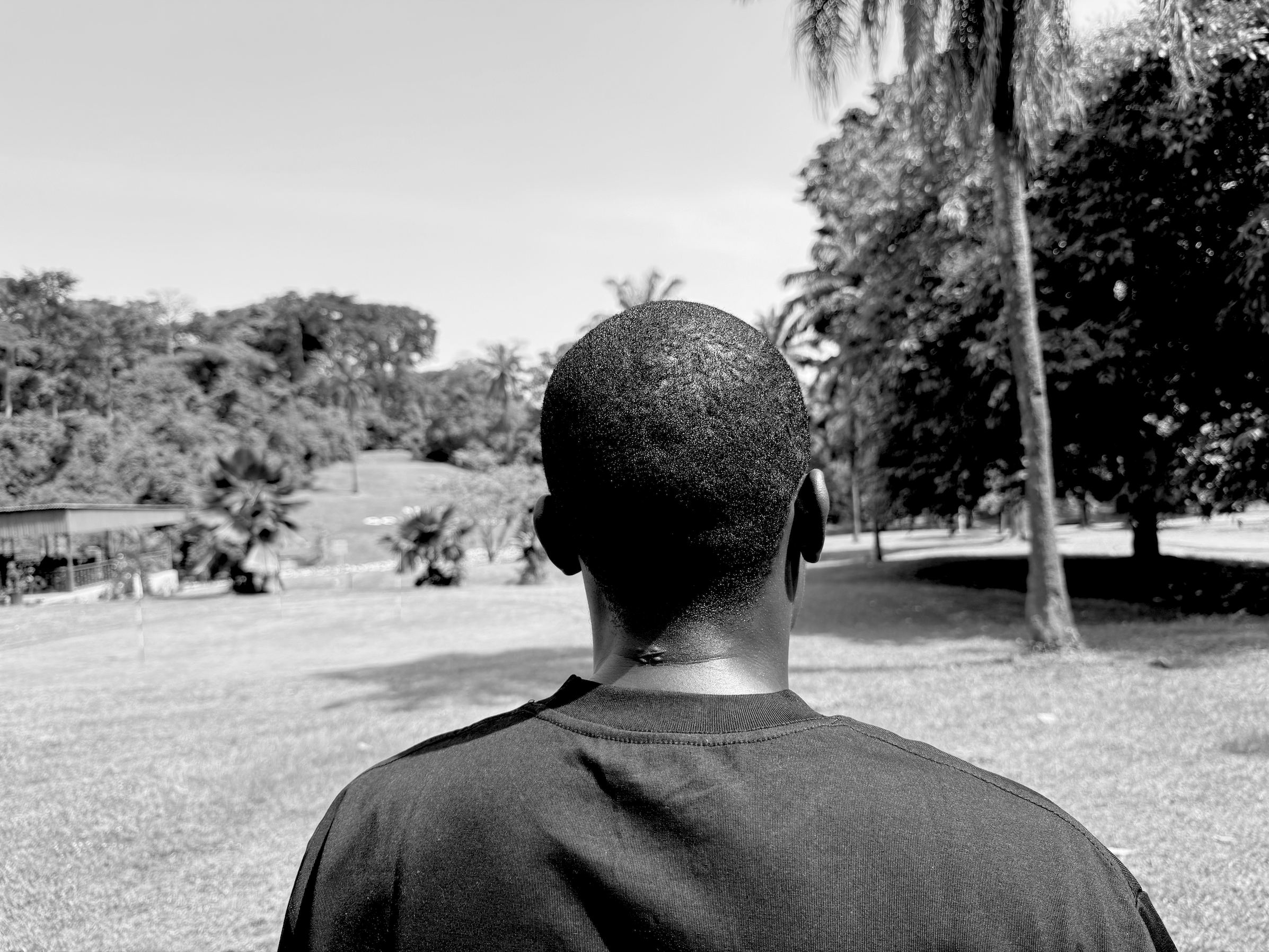
A few days later and back to Lagos, on December 31, 2024, I cancelled my crossover night plans. All I wanted to do this year was work, and so I opted for an entry that was symbolic of exactly that. I asked myself: “what would happen if I gave my full energy for 365 days?” I wanted to find out. So I decided to work into the year, so that every part of me could understand that I meant serious business. The fireworks of my neighbors met me on my computer. I stood up to peep, then opened the doors to say “happy new year” to exuberant people jubilating. I hugged people I had never seen before. Then I went back inside, and continued where I stopped. I don’t think my 2024/2025 crossover was ideal but it was a period where I needed every form of symbolism to convince myself. The year would be full of a lot of this — decisions aimed at convincing myself I meant something for real, for real. (This year, I plan to be with family as we cross over to the new year. I really look forward to this one).
A few days into the new year, I stood up around midnight and I couldn’t recognize who I saw as I walked past the mirror. 2024 had come with so many deep changes to my life and I had spent the previous months on a journey of finding, and charting the course for a new life. As I stared at my long, beautiful locs in the mirror, I knew it was time. I decided to cut my hair, as a signal to myself of a new beginning. I still miss my hair especially when I see them on other people. I had nurtured it for 5 years but the sacrifice was worth it. Sometimes you just let things go. It’s still in my wardrobe though. When I visited my mum some weeks after, she celebrated answered prayers. There was nothing devilish about my hair, but who was I to stand in the way of the testimony of a woman God has ‘heard’?
Our retreats at FourthCanvas always hold in January. Rather than parties to wind off the closing year (which are great), we save our finite resources for a head-clearing number of days to set the stage for the new year. I showed up to a shocked group of about 30 people with my locs cut super short. They couldn’t believe it. On an island away from Lagos, we spent a few days reflecting on the previous year and discussing what would move the needle for us in the year ahead. It was a conversation about the values that have brought this far, the ambitious goals we set for ourselves in what would be our 10th year as an organization, and what things would matter the most for the future ahead. We watched movies, played football, drank hard and soft. On the final night, we dressed up for dinner and celebrated our top performers of the year with a series of awards, dancing so much and so far into the night till the show was closed by a domestic accident involving some beautiful legwork and a slippery floor.
I loosened the shortened locs into an Afro and for a while felt like an Uncle Fá but from the 80s. When I realized how many minutes I had to spend daily combing to keep it in shape, plus the mess of hair all over my bathroom afterward, I decided I couldn't be that brother. I asked the barber to take the whole thing down—not even a strand left. Today I let some hair survive, thanks partly to my friends' nudging. The cold water that hits my bare scalp in the shower every morning tells me I made the right call.
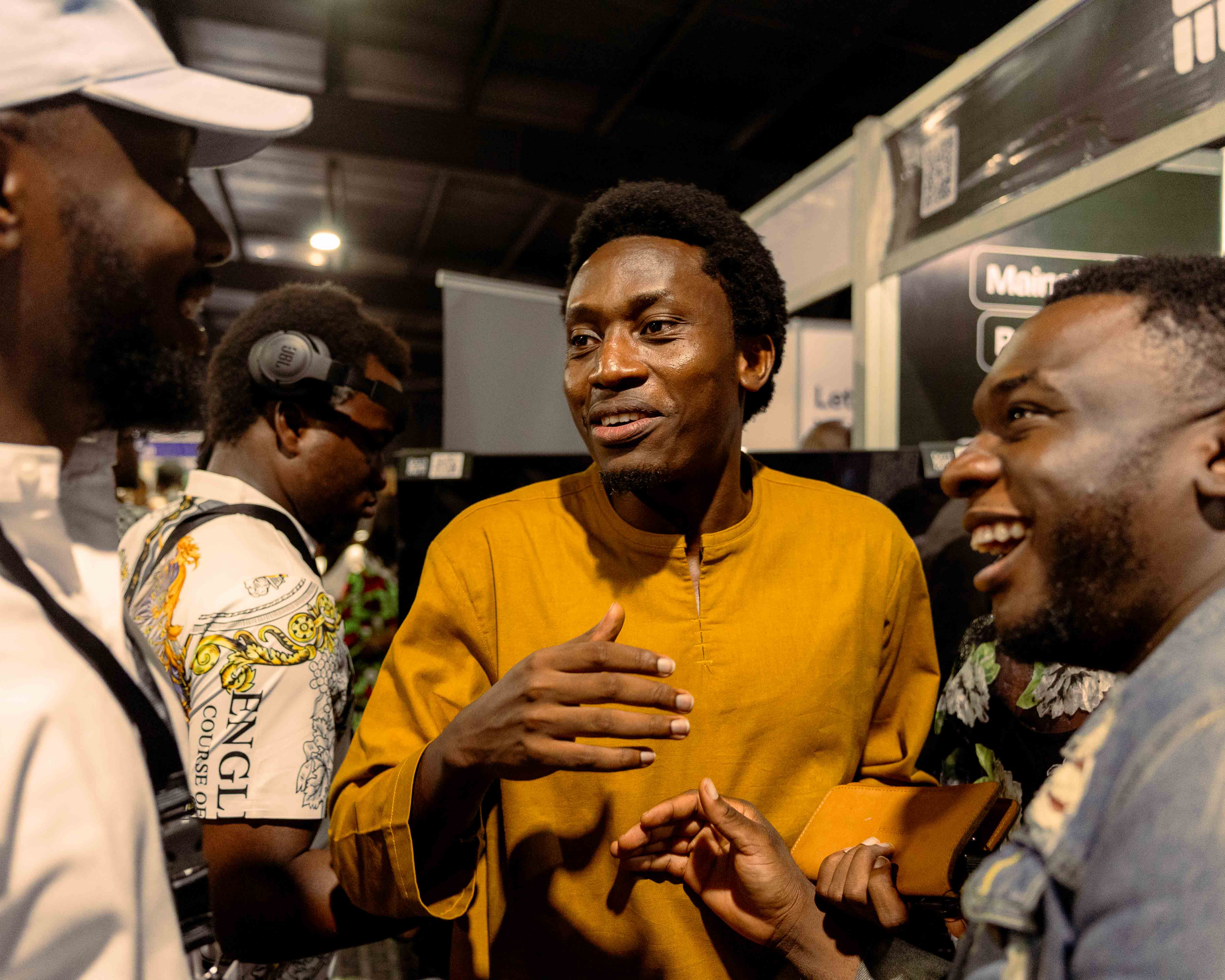
Searching for even more markers of a new beginning, I started attending my family church (RCCG) for a while. Of course, another reason for my parents to be excited. In one of my first services back, the Pastor announced the 100-day fasting and prayer for the entire church. In the past, I always shook my head at people who spent the fresh, starting days of a new year fasting. I would wonder how much productivity was being lost across the nation when millions of people who attend one of its largest churches decide to half their life force for months.
This time, I joined.
For 100 days. I broke my fast by 6pm for the first 50 days. It was hard to keep up beyond this. On some days in the final 50, I ate as early as 1pm. But I did the whole 100! I couldn’t believe it. Every morning I took a prayer walk, starting with the 23 minutes, 30 seconds of ‘Glory Song’ by Dunsin Oyekan, followed by the slower version of Favour (by Godswill Oyor), then the original (by Lawrence Oyor). My days felt physically weaker but then, because I had less energy to give, I gave it to the most important things. No productivity was lost after all. I was super disciplined, no soda, no self-serving leisure or pleasure. At the end of the fast, I went back to my old ways. Not quite like that but I relaxed a little. Where I am as I type this at the end of the year is no where as spiritually attuned as I was then, but it did define my entire year in incredible ways.
I stopped many old habits and picked up new, healthier ones. For one, I didn’t consume any energy drink for a whole year even though my purchases in 2024 must have made a mark on the bottomline over there at RedBull. I have drank like 3 bottles since I celebrated that anniversary on Twitter about 2 weeks ago though. I guess next time I shouldn’t announce it. Also perhaps we can make excuses for ‘Detty December’ but as the wise people of old say, we go again next year.
This year I took my daily habits more seriously. I start with a simple ritual of laying my bed to the best of my ability, signifying how well I want to do everything else that day. In the evenings before I sleep, I make a gratitude list of 5-10 things I’m grateful for that day. Scrolling through those pages, I smile as I read all types of entries, from simple beautiful things like exchanging greetings with a little kid as I walked in the morning, to more tangible things like signing a brand design deal with a new client. I didn’t do these (and a few other new habits) every single day but I did them on more days than not.
For my birthday on February 16, I invited a few friends for what I called a ‘meet-off’ at IITA. 10 of us enjoyed 3 days of long walks to the lake across the forest, reading on a golf course, playing tennis and reflecting on our journeys and ambitions. It was such a grounding moment for similar decisions to follow. On the night of my actual birthday, a few more friends and colleagues joined us for a small dinner. People took rounds sharing about me, as people do on people’s birthdays. It was a beautiful moment of exchanging gratitude notes and gifts. As I type this, I’m wearing the smell of a perfume Teslim Abu gifted me that night. I’m still grateful for the entire experience. Next year I wish someone gifts me a cup though.
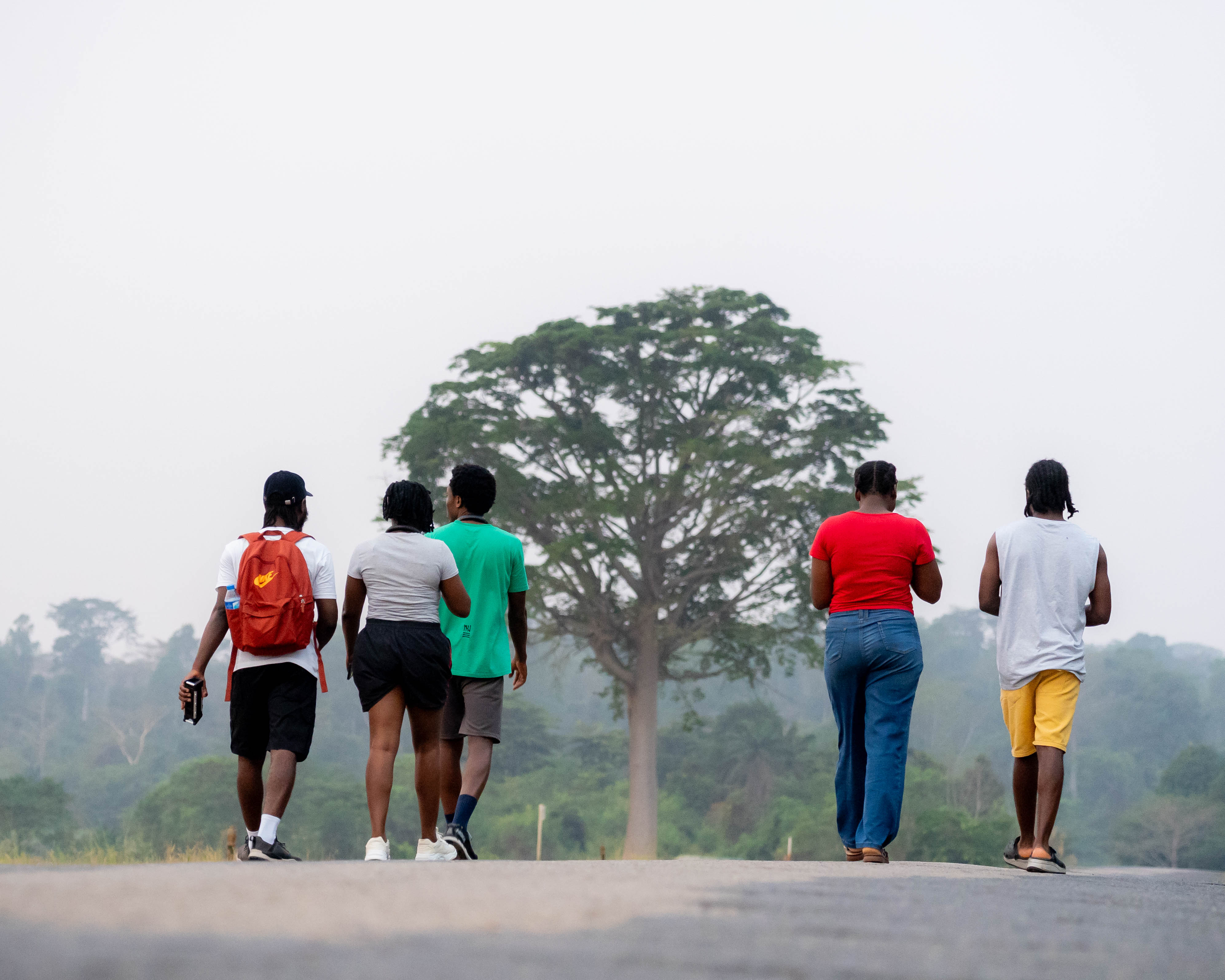
Talking about cups, I grew my collection this year and finally dedicated a trolley to it somewhere next to the plants and vinyl player in my new no-TV sitting room. The vinyl player was a gift from a new friend who sensed where my head was at, or headed. I was going back all the way in all ways, seeking to reconnect with the fundamentals.
I didn’t want to leave the IITA resort. I wanted more of such a grounding environment that stimulated the deepest of my thoughts. As someone who grew up on the hills of Ira-Ikeji-Ile in Osun state and attended a boarding house right in the middle of a forest set against the background of bird and monkey sounds, nature grounds me.
I grew up a Prince. This means that even though we lived in a village, I had a higher standard of living than was typical of my environment. We weren't millionaires or anything close to Nollywood's portrayal of monarchy, but my experience of the rural, natural world didn't come with hardship. I think that influences how I see anything that reminds me of my village.
When I went to the farms, it was not to work. On one of my few experiences on a farm, my uncle and cousin boiled yam that was pulled from the ground as I watched, alongside plantain that was just cut from its stem, with a stew made of pepper plucked nearby and a bushmeat that was shot down on the same farmland. It was the freshest meal of my life. When I went to the rivers, it was not to carry water on my head. Hence I was able to take it all in, in appreciation of the streams, the birds and the greens. It’s probably the greatest privilege of my life. Now I take every chance of a break from the busy, crowded urban to the quiet, serene, rural. It’s a return to my comfort place, and even better, my space for mental stimulation.
I’ve always wanted to go back to a semblance of it. I eventually did.
For years after boarding school, I continued to relive those memories. I wanted to go back. For many years up to earlier this year, I'd dream often that I was back there—in SS2 or SS3 as a returnee no longer scared of the teachers or exams, just happy to be there. The dreams were such a continuity that it started to feel like I was stuck in the past, never able to graduate. In real life, I never stopped imagining a return to those green, natural settings. My ongoing recovery from a major life event last year made that desire even more appealing. I needed a reset. I was grabbing at anything that helped me be more in tune with my authentic self, without all the noise and smoke of urban, capitalist life.
I don’t know what it means for God to speak to someone, at least not in the audible ways that I hear people describe it, but I felt very strongly within me that it was time to go back indeed. Not to my boarding house, but to go back to something close to that deep, centering state. And so I wrote a letter to all my friends, explaining that I was moving out of Lagos. And I did.
In April 2025, I moved into a duplex in the middle of the hills, on the suburb of a town one hour away from Lagos. Capitalism still has me spending 2 weeks every month in Lagos, in my co-founder’s house, but I now always return to a space that inspires me to journal my thoughts more, and take every free time to reflect, sometimes home alone and other times as I walk on dusty, untarred roads, exchanging greetings with strangers while buying atarodo and tomatoes on the roadside. I know the names of the kids on the street and my neighbours actually notice when I’m not around. *Lagos left the group chat. In the mornings, I run to the cliff to take in the view of the valleys as they rise into different elevations dotted by homes, families and humans setting out to do the day’s work.
I declared my doors open to my close friends as the free unpaid Airbnb when they need a break from the noise of Lagos. A few have taken up the offer. Some go on and on about the fresh air and the peace of it all while a few get freaked out by the quiet, slow motion of time.
In the letter I wrote about moving out, I promised I was going to make the most of the quiet serenity to write the book I had been trying to write about branding. I believe it was such an important project to finally prioritize. I am yet to write one single word of that, but I now have over 70,000 words of another — a story about FourthCanvas’ journey and history, shedding light to how we have found our path over 10 years and learning to do it all With Care. I have not been as focused on the future and projects in that direction as much I imagined I would be, but I have done better than I would have if I stayed in the centre of everyday business. (I was in Lekki). I have since spent the most time ever obsessing on our processes, guidelines, and the core things that have no impact on the quarter’s earnings but lay the foundation for years to come.
Apart from co-leading FourthCanvas to its 10th anniversary, my biggest achievement this year would be systemizing the growth of our culture around our core values. I was literally a Chief Culture Officer, ensuring that our core values were front and center in all meetings — from referencing them to constantly having team members identify great examples they’ve spotted and recognizing models that have inspired them in modeling these values, and more.
By Q2, I led a FourthCanvas client project. We had so much demand that I was pulled out of ‘retirement’. By the end of the year, I would have led up to 5 different projects. So much for focusing, detaching and focusing on future-focused projects like the book. I had a good reason for taking up each and every one of them. A particular one involved visiting several rural corners of Lagos and interviewing winners of an international scholarship to learn about their humble beginnings and journeys. I wouldn’t turn down an opportunity to go down that deep and intimate. But then I went so far down learning about the pain and adversity many of the young students experienced that I was mildly depressed for the weeks that followed.
I may not have the book draft I promised my friends when I left Lagos but one thing I did do since I moved was write. I started writing what I call ‘daily shorts’, which were my attempt to condense the new insights I was finding from my new found space for reflection. From corporate culture and everyday values to how AI is changing our lives and my thoughts about the future, I have written 100 of them. They were supposed to be daily. Since I started in April, I should have about 250 of them by now but my consistency tanked after the first 50, which I celebrated by bringing my top readers to a physical meetup I fittingly named ‘Victor Fatanmi In Short’. Maybe I should stop celebrating things. On a serious note, the second half of the year got busier work-wise, as is always the case in our area of work.
You would expect that I also read more this year but I wasn’t as impressive. I didn’t read up to 10 books, but the quality of the few I read was top-tier. My absolute best was Wole Soyinka’s You Must Set Forth At Dawn. It was the best collection of words I had ever engaged. I wondered why I was reading his work for the first time ever. Despite the number of big words I had never come across, I understood them in context. The sentences and paragraphs felt, literally, like a massage of the insides of my brain. This is how I have described it every single time. The feeling was very specific. Afterwards, I picked up a book by Olusegun Obasanjo. Soyinka had made some references to their weird, eventful relationship and I was eager to read something from this ‘other side’. Would he say something about Soyinka too? I was curious. It was the worst thing I could have done to the former President. Closely following up the writing of a Literature Nobel laureate with that of an elder statesman who’s simply educated enough to express himself decently with words was unfair. I had to drop the book a few pages in, not for lack of quality but for the gulf of difference. Nothing could meet that quality but I was at least able to make a next read of out of Noo Saro-Wiwa’s ‘Black Ghosts’. I didn’t have to drop this one.
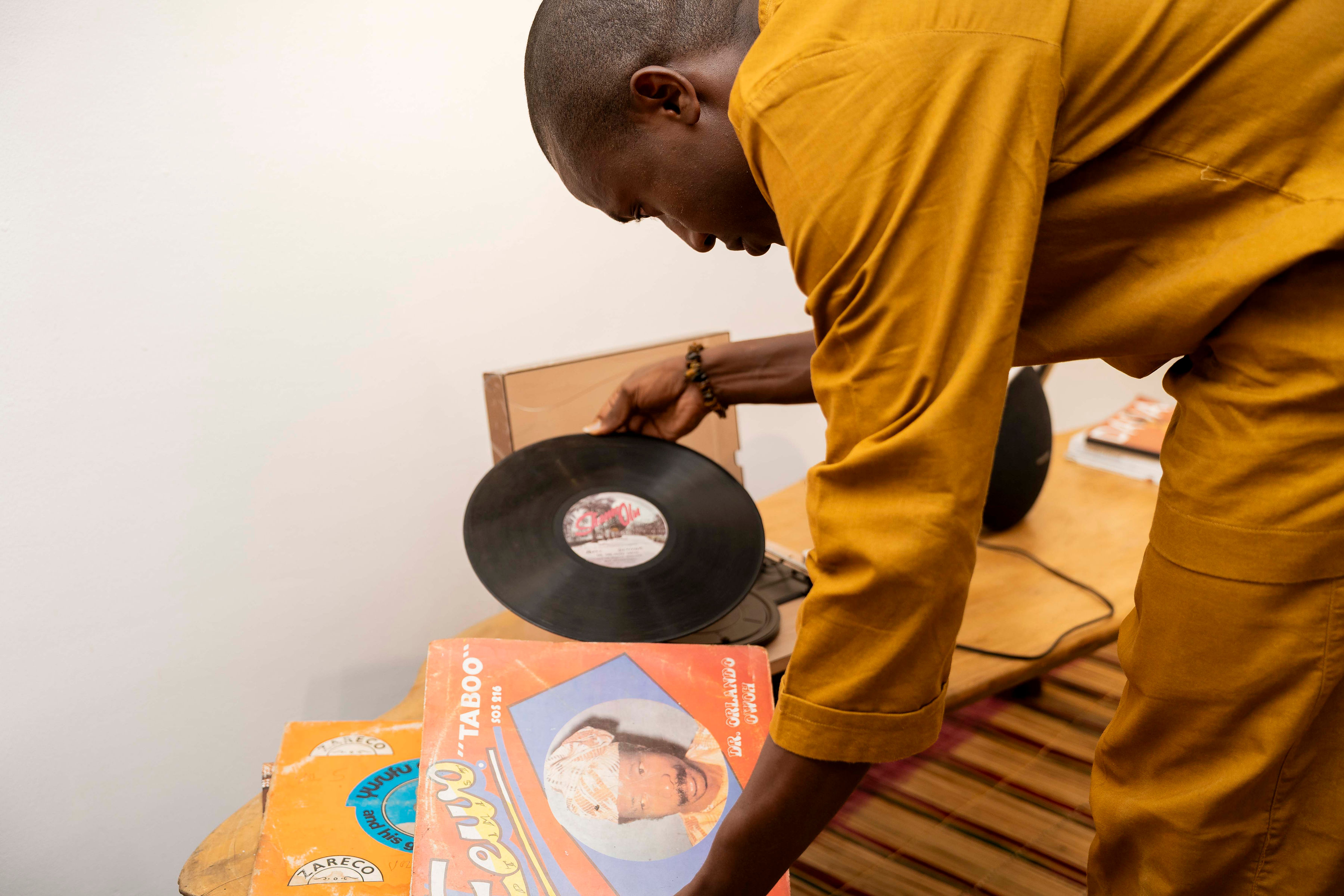
This year I began to listen to podcasts. I had listened to a few in the past but it was never my thing. With more time on those walks and runs, I became a fan of Steven Bartlett’s Diary of a CEO, and Steven himself. On a LinkedIn post, he wrote about his learnings and practice of the keto diet. I was eager to enjoy the promised sense of focus when I switch from carbs to fatty foods. I made the switch drastically and fell sick for it. My body protested with fervour. My return to the lovely, beautiful glucose of nature and the sweet sugars from the industrial line has been sensational. I’ll pass for now, Steve.
With more intentional consumption and space to reflect, I have continued to grow deeper and clearer in my philosophy and ideology, and I have seen this on a collective level with my team members at FourthCanvas, even though the geographic relocation was not team-wide. I guess I’m leading with more thought, but it’s also clear that everyone is seeking more, reading more, and asking more questions. We have grown more uncomfortable with where we are with our work.
At the beginning of Q3, we made major changes to our structure and personnel. The impact on the quality of our work was immediately evident. But the complication is: the better you get, the more you are aware of how far off you are. In that sense, our dissatisfaction has only gotten worse. The ceiling gets higher the closer you come. A few days ago, I took some of our leaders back to IITA resorts (Ibadan) to discuss the new year. You would think we were up to no good this year. We want to do significantly great work or go home. Next year would be even more obsession. More Care.
In August, I joined my parents at the Redemption Camp for the annual convention. It brought back memories of ‘Victory at last 1999’ and ‘Wind of Change 2002’. This one was called ‘The Overcomers’. As someone who was fighting hard to reclaim my life and chart the future with the highest possible level of intentionality, I needed it. More importantly, it was a great time with family. My brother’s wife delivered a new baby right there at a hospital on the camp ground. It was beautiful. I invited my parents to come visit right after. It was the first time I was hosting my dad ever, and the second time for my mum. I looked forward to it and it was a beautiful time together. The part I had forgotten about was that I had stairs. I climbed those stairs in 3 days than I had for 3 weeks. “I need this, I need that, oh sorry I also forgot I needed that”. I would happily do it again, but with a hired help to support me.
While they were around, we hosted an edition of ‘Orin Iyin’ in my home. We had been doing these series of Yoruba hymns sing-along for about a year now, mostly in Lagos. It’s convened by my friend and FourthCanvas Director, Mary Afolabi and her husband. This edition was mine to host and it was special to have my parents around. They deeply enjoyed the hymns and contributed deep, African-parent-type insights as we all took turns to discuss the lyrics.
Next to leaving Lagos this year was leaving WhatsApp for the most part and stopping to use my smartphone. I was accidentally without my smartphone for about 2 days and I loved how it felt. I decided to keep the circumstance. Missing my music and podcasts on my walks, I got an iPod — yes that old, cute thing they stopped making in 2010. I was gifted a flip phone. My favourite is part is that clap of the flip when I end of my phone calls. I have not been reachable on-the-go but when it matters, people call. Perhaps I haven’t missed much.
As we approached November 1, the official anniversary of FourthCanvas, this particular one where we clocked 10, I had so many thoughts about how we should celebrate it. A super smart guy in the ecosystem exchanged Notion documents with me proposing fitting ways to celebrate this milestones. I held conversations internally as well. But we never found the time to plan or execute anything, save for these series of short stories I wrote about our journey With Care. I consoled myself with the fact that the reason we didn’t celebrate it was that we were so engaged with many clients we had earned from 10 years of hard work. And for a gift, the biggest client we could have wished for in the Nigerian tech ecosystem came calling a few days to the anniversary. I was at peace.
This year was so much observation and reflection for me. I accepted fewer speaking engagements. I am hoping to do even less next year. One thing I did more of, compared to last year, was moderate panel conversations. I will be open to more of that next year. I want to listen more and ask more questions. My incurable curiosity suggests I enjoy doing just that, and it’s exactly what the role requires. Maybe one day I will host a show like Steven Bartlett. These would form part of my practice.
The morning of Christmas met me in the most unlikely location — on a breakfast table in far-away Ile-Ife in Osun state, with my two closest friends, Bolaji Fawole and Daniel Falonipe. I would typically ask ‘what are you grateful for this year?’ in a sit-down like that but these two wouldn’t take me that seriously if I tried. We just laughed and chatted about all things beautiful, hilarious and hopeful.
Bolaji came along to spend the rest of Christmas day and the night at my parents’. The following morning, we walked into the forest and followed the sound of water to a river. We were scared at some point, as we took no one’s permission and had no idea what to expect. I asked him if FourthCanvas would be able to pay our ransom if we got kidnapped. He said nobody should pressure the growing business for such, that it would have to be left to our families, and our families alone. We laughed about it, but it faded off quickly as we reflected on the gruesome reality of this for many, while also hoping for the best outcome of the news we woke up to — of the partnership with the US to fight terrorists locally.
Back in Lagos, I delayed my return to base by one day to join the year-closing edition of ‘Orin Iyin’. Titled ‘Idupe’ which means thanksgiving, I could not have asked for a better end to the year, as we sang our hearts out, bringing back the memories and spirit of ageless hymns in Yoruba. When the main thing ended, we danced to old Yinka Ayefele videos on YouTube. ‘Many many many people’, plenty plenty joy to go around.
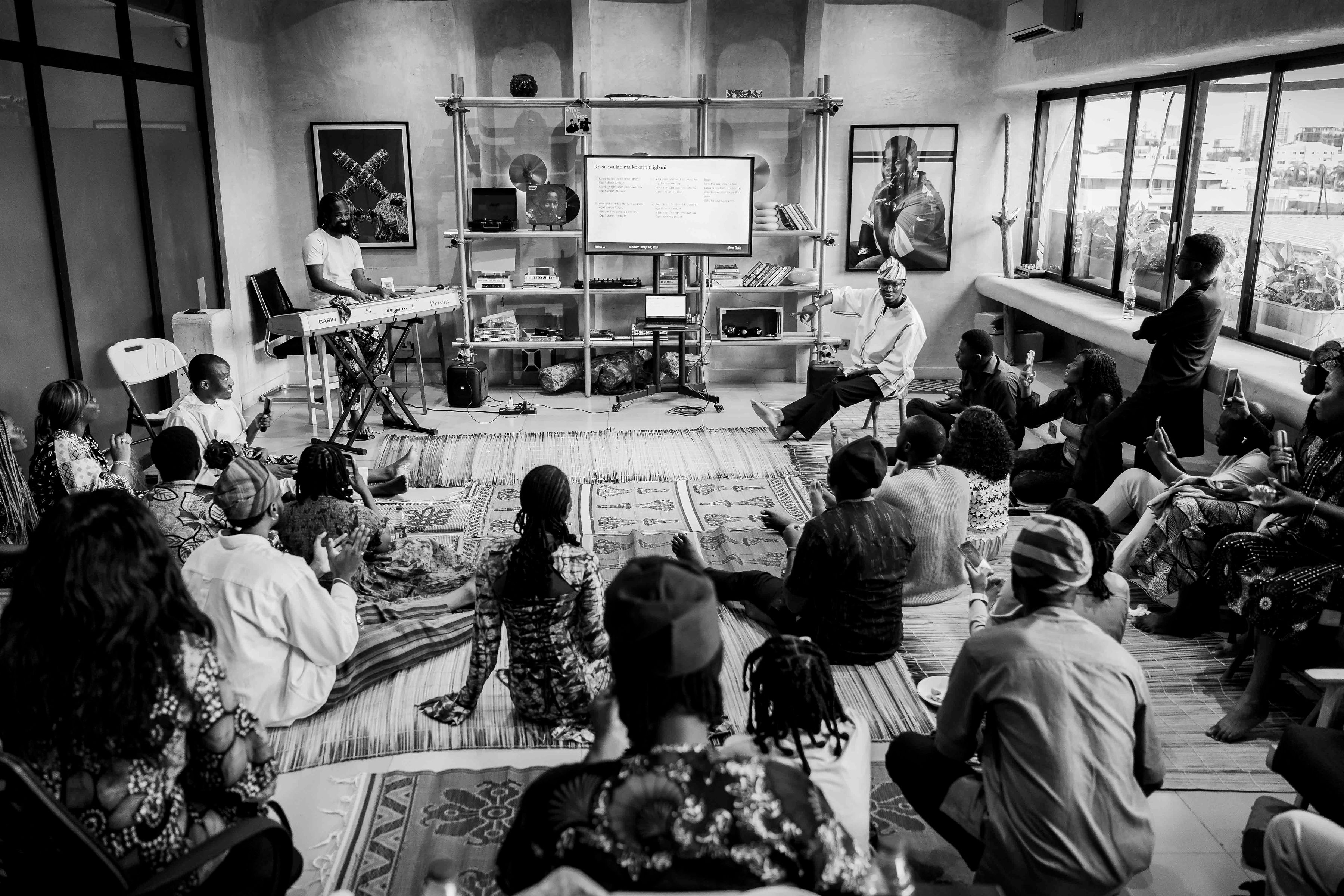
As I reeled in the progress of the year, and the past 10 years of FourthCanvas, I also battled with the impostor feeling with how Fullgap, our other startup has fared in recent times. We have been in stark contrast of our very active launch days, now more quietly rebuilding to fix major structural issues and prepare for a future that remains potentially bright. Things have not moved as excitedly as we hoped upon inception about 2 years ago. When my friend, Kitan-David Aboluwarin asked me about my year, I said “I have a thriving business in its 10th year, and a struggling startup people are unsure what it’s up to at the moment”.
“Great year”, he responded “you could have had two struggling businesses you are trying to figure out at the same time.”
You can write back to me if this made you reflect in gratitude or simply smile → victorfatanmi@gmail.com